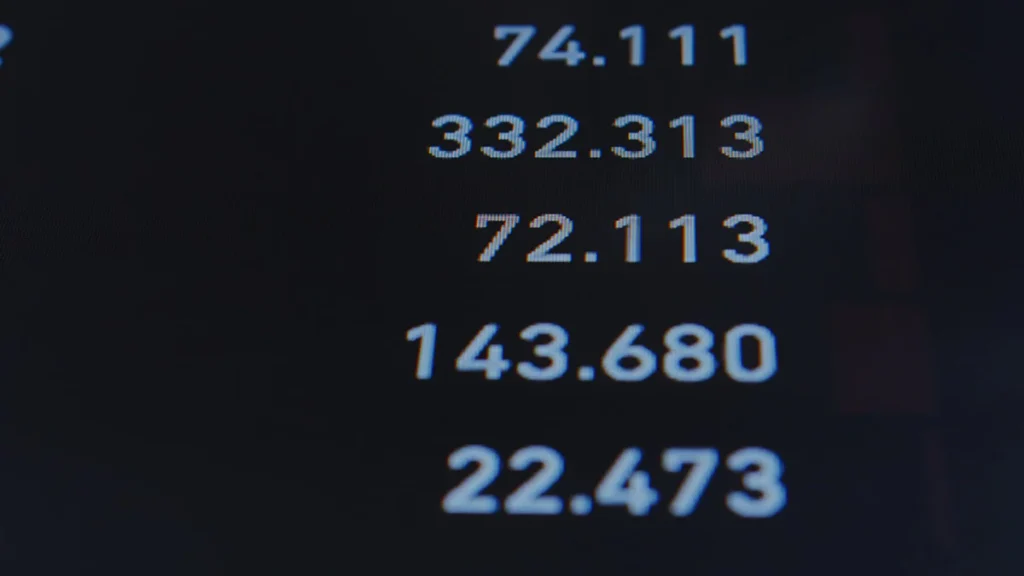Exploring the Duties of Commodity Brokers in the Trading World
Commodity brokers play a crucial role in the trading world. You rely on them to execute trades and manage your portfolios effectively. These brokers facilitate trading by providing essential market insights and investment advice. Their duties include buying and selling commodities like Commodity Paper, ensuring you make informed decisions. Successful brokers possess skills such as analytical thinking and strong communication. They understand the complexities of the commodity market, helping you navigate through it. With their expertise, you gain access to valuable opportunities in the ever-evolving world of commodities.
Key Responsibilities of Commodity Brokers

Market Research and Analysis
https://2d538hj8y-8xet1lr4llzchhf6.hop.clickbank.net
Commodity brokers play a pivotal role in the trading world by conducting thorough market research and analysis. Every day, you rely on brokers to identify trends in the ever-changing landscape of commodities. They use their analytical skills to scrutinize market data, ensuring you make informed decisions when buying or selling Commodity Paper. This process involves evaluating the profitability of potential deals and understanding the nuances of commodity futures. Brokers suggest strategies based on their findings, helping you navigate the complexities of commodity trading.
Client Management
Building and maintaining strong client relationships is at the heart of commodity broker responsibilities. You depend on brokers to provide personalized advice on investment strategies. Their interpersonal abilities and effective communication skills are essential in this regard. Brokers give traders insights into the market, guiding you through the intricacies of commodity futures. They execute trades on your behalf, ensuring that your portfolio aligns with your investment goals. By fostering trust and transparency, brokers help you achieve success in the commodity market.
Regulatory Compliance
Commodity brokers responsibilities require strict adherence to trading regulations and ethical practices. You can trust brokers to follow the legal framework governing commodity trading. They ensure that all transactions comply with industry standards, safeguarding your investments. This commitment to regulatory compliance is crucial in maintaining the integrity of the market. Brokers work diligently to uphold these standards, providing you with peace of mind as you engage in commodity trading.
Commodity brokers play an indispensable role in the brokered market. Their expertise, market knowledge, and resources are instrumental in helping you navigate the complexities of commodity trading. By leveraging their skills, you gain access to valuable opportunities and insights, ensuring your success in the dynamic world of commodities.
Essential Skills and Traits for Success
Analytical Skills
In the world of commodity trading, your ability to analyze complex market data is crucial. Commodity brokers work diligently to interpret vast amounts of information, ensuring you make informed decisions. They scrutinize trends and patterns in the market, providing insights that guide your trading strategies. For instance, when dealing with Commodity Paper, brokers evaluate factors like supply and demand dynamics and price trends. This proficiency in analytical skills allows you to judge the profitability of potential deals effectively.
Commodity brokers possess a deep understanding of various commodities. Their expertise spans across different sectors, such as energy or agriculture. This knowledge enables them to offer valuable insights into market conditions. For example, a broker specializing in the energy sector can advise you on factors influencing oil prices, such as geopolitical events or production changes. These insights are vital for making strategic trading decisions.
Communication Skills
Effective communication is at the heart of successful commodity trading. You rely on brokers to convey complex information clearly and concisely. Their customer-service skills ensure that you understand the intricacies of the market. Brokers engage in meaningful conversations with you, discussing investment strategies and potential risks. This open dialogue fosters trust and transparency, essential elements in building strong client relationships.
Negotiation is another critical aspect of communication in commodity trading. Brokers use their persuasion skills to guide your decisions, ensuring your portfolio aligns with your investment goals. They negotiate on your behalf, securing the best possible deals in the market. This ability to communicate and negotiate effectively sets successful brokers apart in the competitive world of commodities.
https://2d538hj8y-8xet1lr4llzchhf6.hop.clickbank.net
Attention to Detail
In the fast-paced environment of commodity trading, attention to detail is paramount. Brokers meticulously execute trades, ensuring accuracy in every transaction. They monitor market changes closely, keeping you informed of any fluctuations that may impact your investments. This vigilance in tracking market movements helps you stay ahead in the ever-evolving world of commodities.
Commodity brokers work tirelessly to maintain the integrity of your portfolio. They ensure that every trade aligns with your investment strategy, minimizing risks and maximizing returns. Their commitment to detail provides you with peace of mind, knowing that your investments are in capable hands.
Comparing Commodity Brokers with Other Trading Roles

In the trading world, you encounter various roles, each with distinct responsibilities and expertise. Understanding the differences between these roles can help you make informed decisions when engaging in the market. Let’s explore how commodity brokers compare to futures traders and options traders.
Commodity Brokers vs. Futures Traders
Differences in Trading Instruments and Market Focus
Commodity brokers and futures traders both operate in the realm of commodities, but they focus on different aspects. As a commodity broker, you primarily deal with Commodity Paper, facilitating the buying and selling of physical goods like oil, grains, and metals. Your role involves executing trades on behalf of clients, providing them with insights into market trends and investment strategies.
Futures traders, on the other hand, specialize in trading futures contracts. These contracts are agreements to buy or sell a commodity at a predetermined price on a future date. You, as a futures trader, focus on predicting price movements and leveraging financial data to make profitable trades. This requires a deep understanding of market dynamics and the ability to analyze complex financial information.
Variations in Client Interaction and Service Offerings
When it comes to client interaction, commodity brokers excel in building strong relationships. You provide personalized advice, helping clients navigate the complexities of Commodity Paper trading. Your skills in client management and communication are crucial in fostering trust and ensuring client satisfaction.
Futures traders, however, may have less direct interaction with clients. Your focus is more on analyzing market data and executing trades based on financial models. While you still provide valuable insights, your role is more analytical, requiring a keen eye for detail and a strong understanding of market trends.
Commodity Brokers vs. Options Traders
https://57fa7mm6-a-08o87x4s92c-wd3.hop.clickbank.net
Distinctive Risk Management Strategies and Market Analysis
Commodity brokers and options traders both play vital roles in the trading world, but their approaches to risk management differ. As a commodity broker, you help clients manage risks associated with physical commodities. You analyze market trends and provide strategies to mitigate potential losses, ensuring that your clients’ investments align with their goals.
Options traders, however, deal with options contracts, which give the holder the right, but not the obligation, to buy or sell a commodity at a specific price within a set timeframe. Your role involves assessing the volatility of the market and developing strategies to capitalize on price fluctuations. This requires a deep understanding of market analysis and the ability to predict future price movements.
https://fiscalfitnessflow.com/index.php/2025/06/19/fintech-innovations-set-to-redefine-banking/
Unique Approaches to Client Advisory Services
In terms of client advisory services, commodity brokers focus on providing comprehensive market insights. You guide clients through the intricacies of Commodity Paper trading, offering tailored advice based on their investment objectives. Your expertise in commodities and market analysis is invaluable in helping clients make informed decisions.
Options traders, on the other hand, offer specialized advice on options contracts. You help clients understand the complexities of options trading, providing strategies to maximize returns while minimizing risks. Your role requires a strong grasp of financial instruments and the ability to communicate complex concepts clearly.
By understanding these differences, you can better appreciate the unique contributions of commodity brokers, futures traders, and options traders in the trading world. Each role offers distinct advantages, and your choice will depend on your specific needs and investment goals.
Commodity brokers play a pivotal role in the trading world. You rely on them to execute trades and manage portfolios effectively. Their duties include conducting market research, analyzing data, and providing investment advice. Commodity brokers also handle regulatory compliance, ensuring all transactions adhere to legal standards. Compared to other broker roles, commodity brokers focus on physical commodities like Commodity Paper, while futures and options traders deal with contracts. By acting as intermediaries, commodity brokers facilitate efficient trading, enhancing market efficiency. Their expertise in commodity futures and Commodity Pools offers investors valuable opportunities in the dynamic commodity market.
Conclusion
In conclusion, understanding the pivotal role of commodity brokers in the trading world is essential for anyone looking to navigate this complex market effectively. Brokers facilitate transactions, provide market insights, and help mitigate risks, making them indispensable partners in trading endeavors. As you delve deeper into the trading landscape, consider engaging with a qualified commodity broker to enhance your strategic decisions and optimize your trading outcomes. Take action today by researching reputable brokers who can guide you through the intricacies of commodity trading and empower you to achieve your financial goals.
FAQs
What is a commodity broker?
A commodity broker is a professional who facilitates the buying and selling of commodity contracts on behalf of clients. They act as intermediaries between buyers and sellers in the commodities market, ensuring transactions are executed efficiently and accurately.
How do commodity brokers operate?
Commodity brokers typically operate through brokerage firms. They assist clients by providing market insights, executing trades, and offering strategic advice. They use their expertise to navigate complex market conditions and help clients make informed decisions.
What types of commodities do brokers trade?
Commodity brokers trade a wide range of commodities, including agricultural products like grains and livestock, energy resources like oil and natural gas, metals such as gold and silver, and other raw materials. The scope of commodities can vary depending on market demand and global economic factors.







